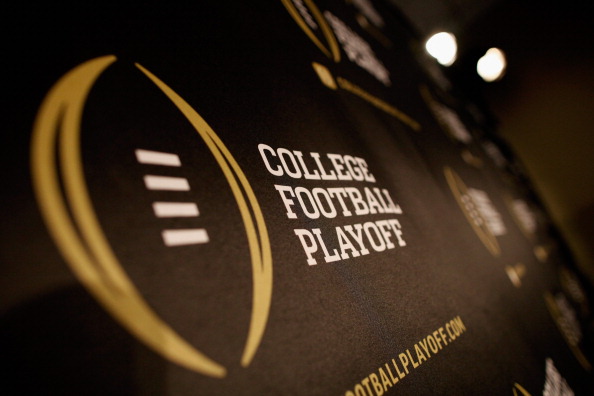ESPN and College Football Playoff director Bill Hancock can spin it all they like but the proof is in the advertising dollar pudding when it comes to how disappointing ratings were for the 2015 College Football Playoff semifinals on New Year’s Eve.
Despite the assumption that the record-setting numbers from the previous year were bound to drop, few expected to see ratings drop 36 percent. ESPN certainly didn’t expect it or else they wouldn’t have made promises they couldn’t keep to media buyers looking to put their brands in front of the huge audience.
According to Broadcasting & Cable, after failing to hit high audience guarantee levels, media buyers are demanding “upwards of $20 million in ad makegoods for ratings shortfalls for the two games.” Furthermore, even advertisers are making it clear they prefer to see the games played on a day different than New Year’s Eve:
[A]dvertisers are concerned about next season’s potential audience levels for the games, which will also be televised on New Year’s Eve. Even if the ratings guarantees by ESPN are set lower, advertisers would prefer the games be moved to New Year’s Day or even on consecutive primetime nights, exclusive of New Year’s Eve, when more people would likely watch.
The College Football Playoff has been adamant that despite the severe drop-off, they are not budging from New Year’s Eve. In the remaining 10 years of the four-team playoff deal, they still plan to hold semifinals games on December 31 on seven of them.
B&C says ESPN is working on making it up to advertisers through literal “makegoods,” although what they entails remains unclear. The most obvious way to do so is increased presence during the National Championship game between Alabama and Clemson on Monday, Jnauary 11. ESPN is pulling out all the stops with its Megacast and could likely add ad opportunities within.
ESPN is also broadcasting the NFL wild card playoff game between the Kansas City Chiefs and Houston Texans on Saturday and could increase advertiser awareness during that. Of course, advertisers could also bank their earned goodwill for next year’s College Football Playoff as well.
In the meantime, all eyes turn to Monday’s championship game to see if ESPN is able to deliver on its audience promises for that game as well. Last year’s game drew 33.4 million viewers, the most-watched program in cable history, and the network claims this year’s game will do even better. At least, that’s how they justified raising the cost for a 30 second spot from $1 million to $1.3 million.
In the meantime, CFP executive director Bill Hancock has been on a whistle-stop tour to soothe concerns about the New Year’s Eve debacle and why it’s nothing to be worried about. Hancock, who championed the hated BCS for years, doesn’t have much of a leg left to stand on with the general populous, but that’s not stopping him from trotting out any excuse he can think of…
Who wants to be the one to tell Bill Hancock there’s another Star Wars movie coming out next December
— Matt Brown (@MattSBN) January 8, 2016
If the numbers don’t add up for the title game, ESPN will enter 2016 will a whole lot of makegoods to make up.

Comments are closed.